It’s not even June yet, and I’ve already read 25 books. If I keep this up, I might reach the unprecedented count of 50 books in a year! This is the first time I’ve had reason to split my yearly reading report in two parts, and it feels good.
Six of the 25 were from the Dark Tower series by S. King. I’m reading the last one right now. Although I’ve known about this series forever, I always felt an inscrutable resistance against reading it. Perhaps on account of also knowing that it underlies or underpins all his other stories, a notion I find unappetizing.






I picked it up this winter as means of clearing my palate after the stunningly bleak experience of reading N. Gaiman’s Coraline. As this is another book from this half-year’s crop, I’ll make a brief digression here to say a few unfavorable words about it. The only other Gaiman’s work I’ve read is one of his oldest (perhaps the oldest), titled Neverwhere, which was so deeply underwhelming that it took me something like 10 years to dare and sample Gaiman’s writing again, with Good Omens, which I mentioned in the last year’s reading report. As that wasn’t horrible, I tried Coraline next. And it’s the same utterly bland, gray, emotionless, dead-hearted, dead-eyed crap I remember from Neverwhere. I started to type “never again, or at least not for another 10 years” but then I remembered that his Norse Mythology is also among the books I’ve read this year, and I didn’t hate that one.

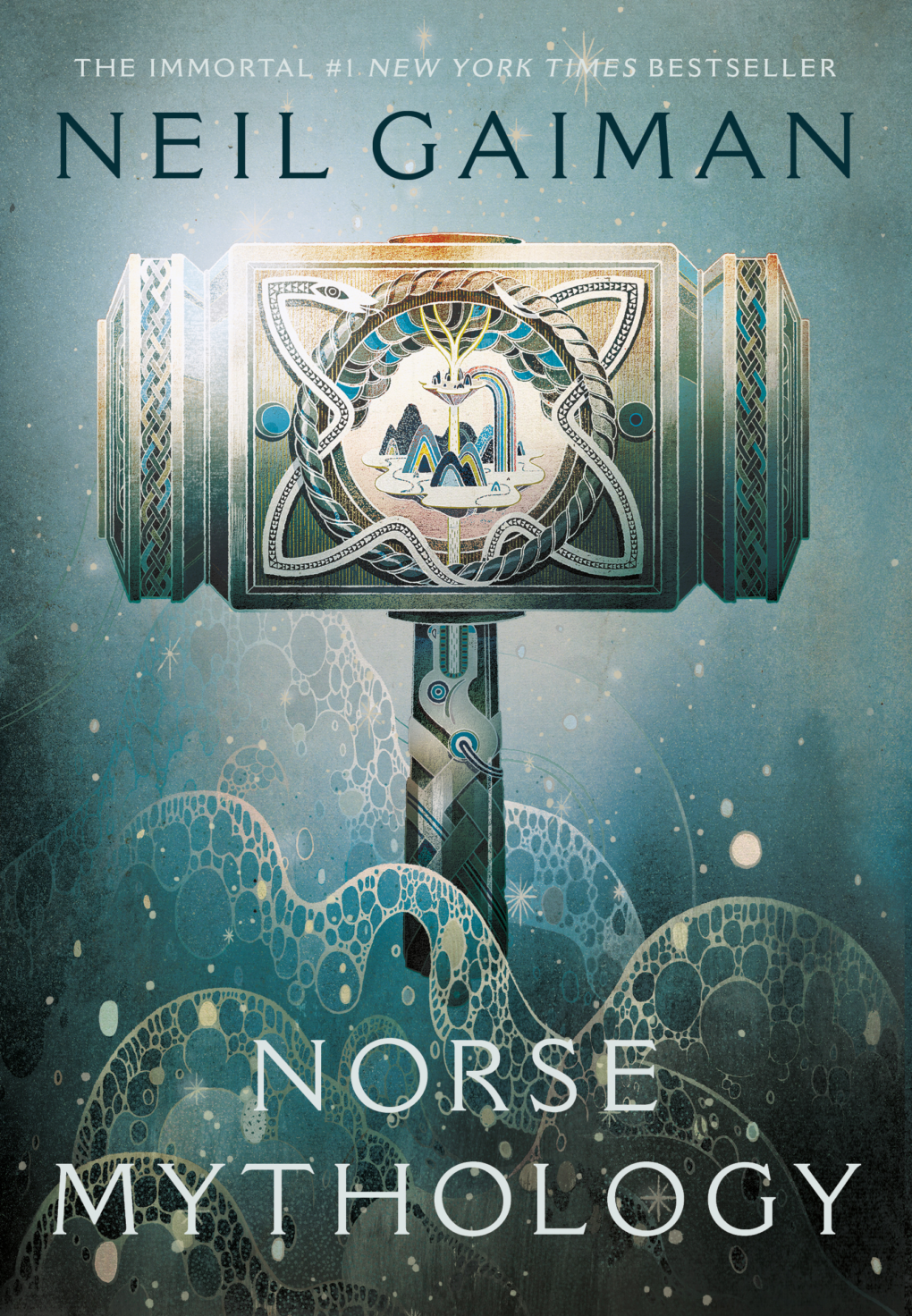
Anyway! Back to the Dark Tower. I enjoyed the first book, The Gunslinger, more than any that followed, and got unexpectedly attached both to Roland, the titular Gunslinger, and to the boy Jake, but most of all, to the arc of their bonding, which moved me greatly. All the better to be shattered by the book’s tragic ending! Roland lost most of my sympathy there, but it was quick to come back with the suffering he endures at the beginning of the second book.
I was thrilled that one of the new characters introduced in The Drawing of the Three has DID (Dissociative Identity Disorder). The dedicated reader will discover why in one of my future posts; for now let me just say DID has been popping out in various contexts recently, and that’s always delightful, even if one’s not superstitious enough to see “a sign” in it. Within the Dark Tower series, the DID character is my least favorite, mostly because there’s just too much going on with her. Next to her serious mental illness, she’s severely physically disabled, and then on top of all that shit, she gets pregnant against her will, because of course that’s what must happen to the single female character of the series. (Alright, there’s another female character, who also gets pregnant, and then burned at the stake too. Let no one think Mr. King cuts girls undue slack.)
So far, I liked the fifth book (Wolves of the Kala) the most, and the sixth (Song of Susannah) the least. Overall, I’m still not a fan of the multiverse concept, especially now that “our” world is established as the “real” one. By all previous accounts, that dubious honor should belong to the Inworld and Roland’s homeland of Gilead. But then Mr. King could not establish himself (I kid you not) as a god-like character in the narrative. Fortunately, he killed himself off quickly enough.
Despite these grumblings, I have been enjoying the series immensely and I can well imagine reading some of it again, which says a lot.



In a bit more chronological order, Eco’s The Island of the Day Before was one of the first books I completed this year, after up to six months of reading. As a rule, I like to have a very long and rather boring book open at all times, to put me to sleep when I’m nervous or just not up for more engaging reading. This was one such book. A completely ridiculous and ultimately pointless tale tailored such as to showcase all the research the author has done and the knowledge he has accumulated on topics such as medieval methods to measure the longitude while traversing the seas. Almost like non-fiction, which some may find attractive. Not I! But it served its purpose beautifully.
Next was Wylding Hall by E. Hand, which I liked on account of good atmosphere, some genuinely creepy moments, and a diverse cast of characters. But the end was underwhelming. I expected some grand finale and instead it just faded out, much like the cover photo.
A few years ago I read S. Pinborough’s Death House, and was impressed enough to remember the author and vaguely wish to read more of her work. Then I heard and/or saw praise for her Insomnia, and decided to give it a try. For the most part, it’s a solid, decent book, with an engaging plot that keeps you wondering whether or not you can trust the narrator not to be a thoroughly deranged child-murderer. The story gets increasingly complicated and unpredictable and prior to the “final revelation” I thought any resolution would constitute a masterpiece. But then it all fell apart like a house of cards with the introduction of supernatural elements in the final leg of the story. Talk about Deus ex Machina! It totally ruined my experience.

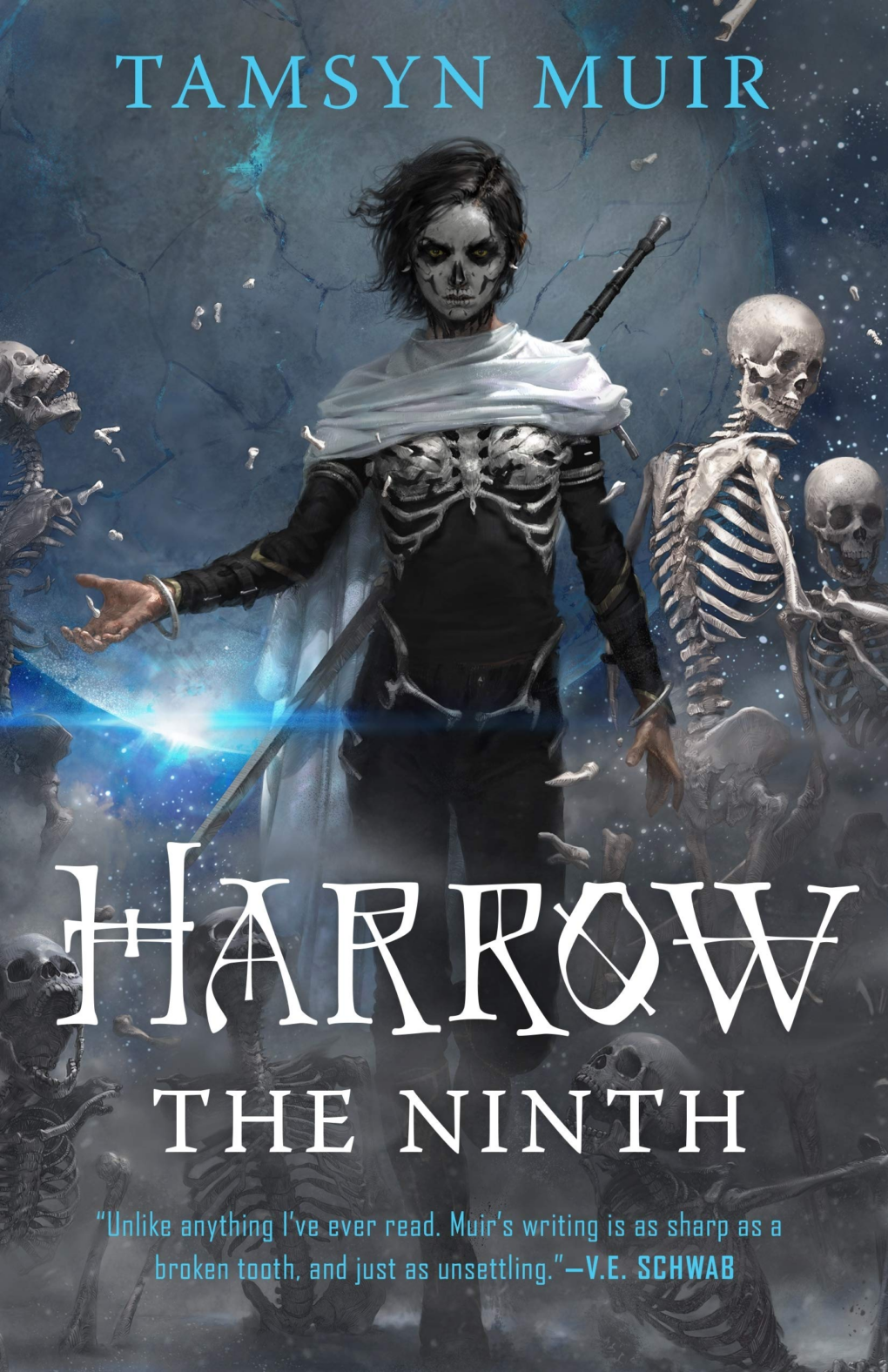

I did not think I would like the Locked Tomb series by T. Muir (yes, I know that begs the question why I picked it up, to which I have no answer), but I ended up enjoying it quite a bit. The first book is excellent and entirely standalone. The sequels are strange, and run very contrary to what one imagines the readers of the previous books might want to read next. On one hand, I respect this decision. The author is entitled to do whatever she wants with her stuff, and that includes not being influenced by what she, or anyone else, imagines the readers might want. On the other, I think the sequels are what they are because the author wasn’t skilled enough to keep up the tension in a key arc, or disciplined enough to just drop it, and opted instead to write thousands of pages of what ultimately comes down to insanely roundabout worldbuilding filler. Still, I liked the series enough to read all of it, and had the fourth book of this “well-planned” “trilogy” been available, I would’ve gone on to read that too.



Next comes a trio of books that constitute a bit of cheating regarding my glorious achievement of reading 25 books, because one of them, As Meat Loves Salt by M. McCann, I’ve already read last year (and I’ve had a lot to say about it), so I’m not sure it counts; and the other two I didn’t read in full. I listened to The Premonitions Bureau by S. Knight in the form of a podcast, but it was an abridged edition, not a complete reading. And from The History of Printing in America by I. Thomas, I only read the parts relevant to the earliest colonial times in New England (basically, the Cambridge Press) as part of research for an AMLS fanfic in progress.



I read The Stone Gods by J. Winterson in February, I believe. It took me quite a while. On the whole, the book seems to lament humanity’s cruel and terminally stupid relationship with nature and future, but the structure is confusing and honestly, pointless? There are three seemingly independent parts. The first is about a woman falling in love with a (woman) robot in some mildly dystopian future. The second is about a 17th or 18th century sailor stranded on the Easter Isles, where he falls in love with a half-European, half-indigenous man. The third part is about another woman kidnapping that same robot from the first part, in the same, or perhaps slightly different version of the same setting. The first and the third part… I could swear they’re two versions of the same story. Liking both equally, and having no better idea, the author decided to serve us both. It’s really quite lame. But I enjoyed the middle part very much. Perhaps because it’s about gay men, which happens to be my favorite subject, or because it’s set at about the same time as AMLS. Perhaps because, unlike the other two parts, it’s an actual, tangible story, with an identifiable beginning, middle and end. Either way, it moved me, possibly enough to read it again sometime.
Next is The Pilgrim’s Progress by J. Bunyan, which some consider the first novel written in English. It was published in 1678. Jacob and Ferris from AMLS would be around 60 at the time, and might in theory read it. I wanted to read it for period language, but also to expand my mental inventory of Christian faith, again as part of research for the AMLS fic. I got what I bargained for, but it was strange, difficult, and often boring reading.
Somewhat along the same path (but going in the opposite direction) is P. Pullman’s The Good Man Jesus and the Scoundrel Christ, a retelling of the New Testament where Jesus and Christ aren’t one person, but twin brothers, with very different personalities and roles in history. I’m struggling to say more about it because the topic is so very immense, and my opinions so very irrelevant. I loved it. I plan to use parts of it in my fanfiction, and I might read it again from cover to cover at some point. For the record, I learned about it from The New Yorker article What Did Jesus Do, which also makes excellent reading.


These next two books I mean to write about in a dedicated post. I know I had often said I’d do that and often proceeded to not do it, but I hope I’ll manage to make an exception this time. On one hand we’ve got The Wilding by M. McCann (the author of AMLS), another historical drama set about three decades after AMLS. It has neither the power nor the pathos of AMLS, but it’s an excellent story excellently told and I enjoyed every word of it. On the other hand we have The Vanishing Point by M. Sharrat, a historical romance set another two decades later, in early colonial America. I picked it up for the period and the setting, failing to realize it has nothing to do with the Puritans of New England that I’m interested in. The reading experience was a mixed bag that left me angry and disappointed in the end, mostly because the drama was essentially supplied by the sheer stupidity of the main character, who’s supposed to be unusually smart. I want to write a comparative review of these books because they fit the same genre, they have quite a bit of thematic overlap (note the weirdly similar covers) and, crucially, almost the same rating at Goodreads, which is appalling.
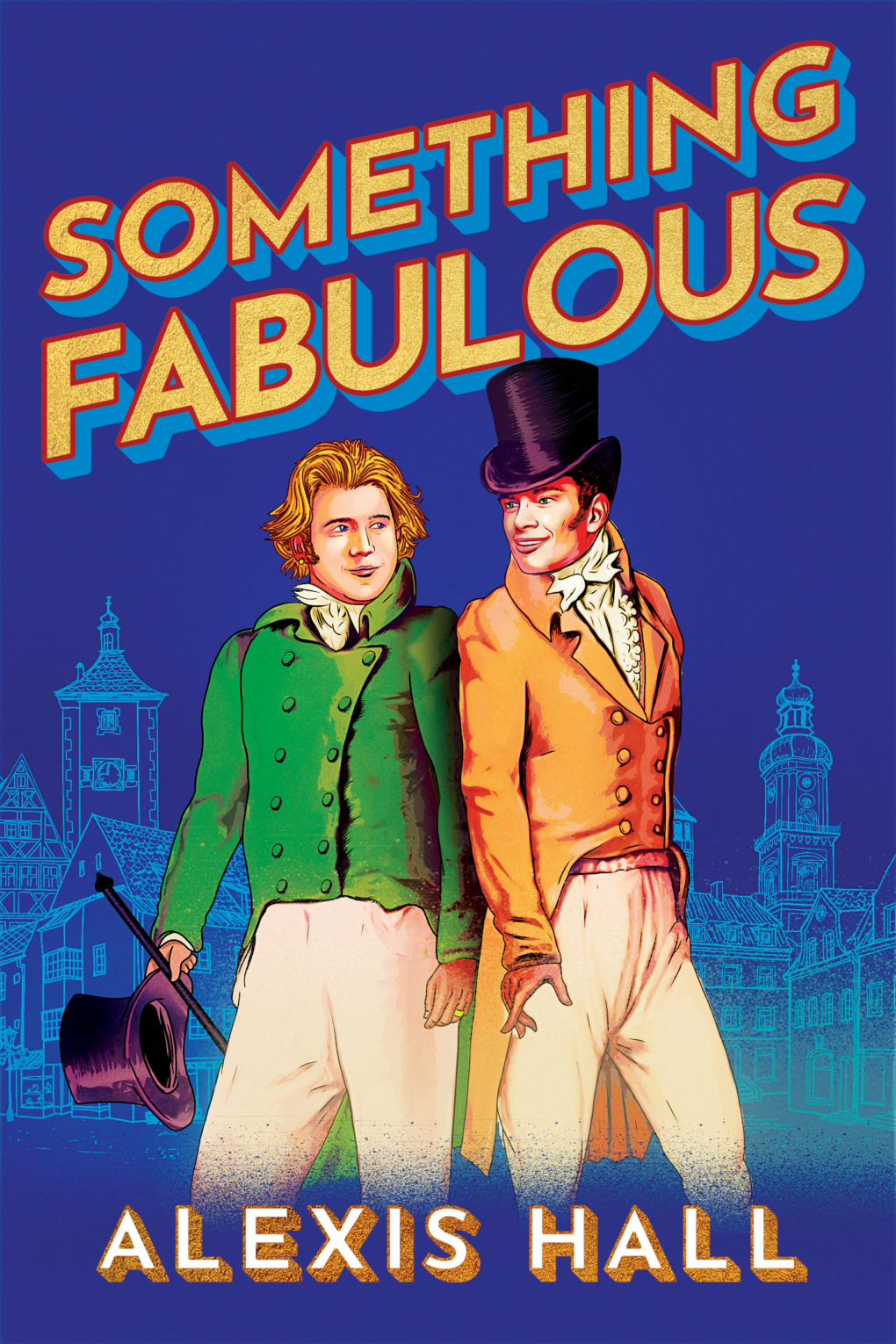
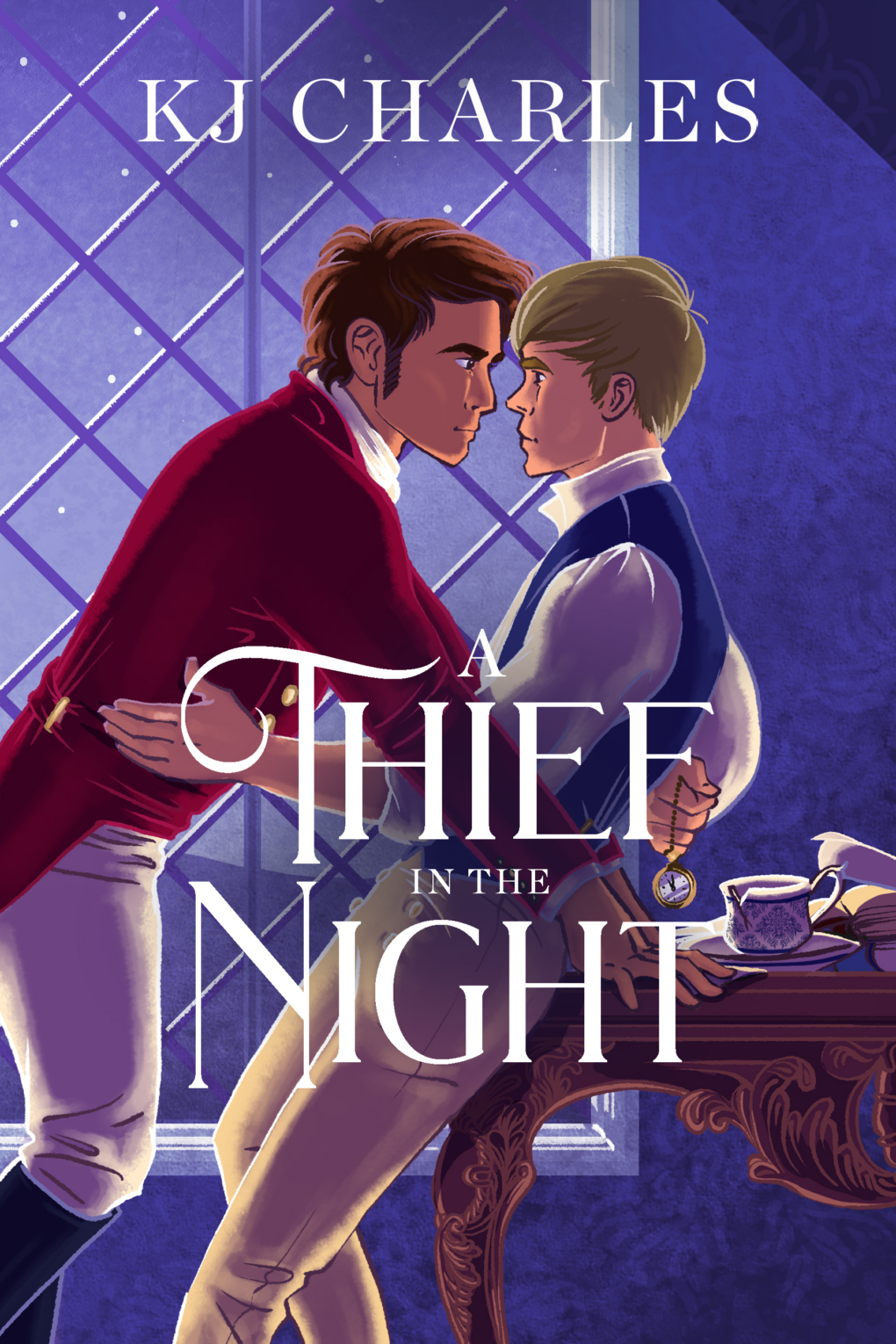
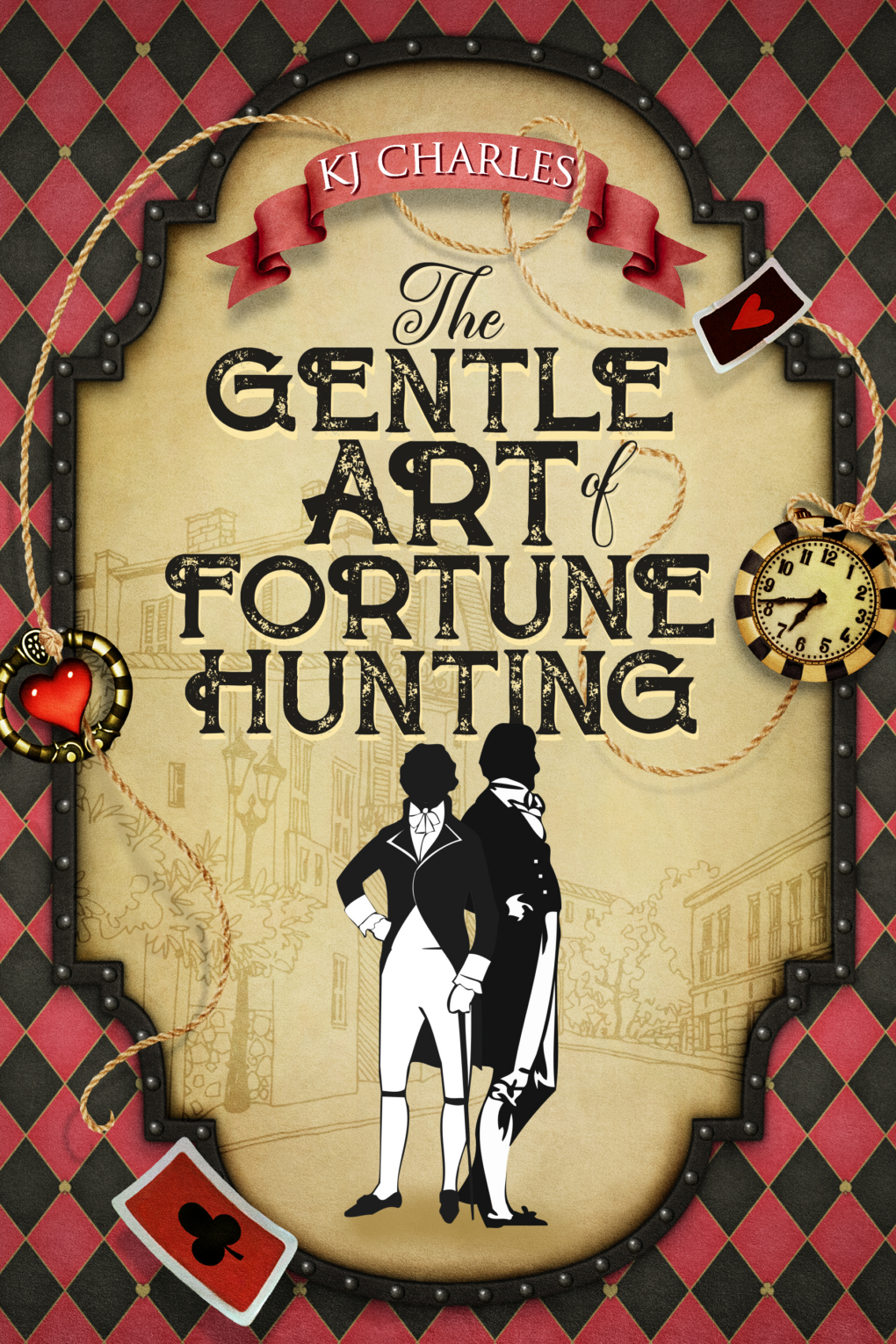
Finally we get to my most recent reading: three regency M/M romances written by two of my (debatably) favorite M/M romance authors.
Something Fabulous by A. Hall should’ve been titled “Something Ridiculous” as it is more of a comedy than it is a romance, which I wasn’t prepared for when I started reading (though I bet the blurb and other meta-data provide ample warnings, but I never pay attention till it’s too late). I hated the comedy aspect of it, and the romance aspect of it wasn’t good enough to balance it out. One of the protagonists seems to be an Aspie, and some of the humor is hinged on him taking words too literally, failing to catch behavioral nuances, blindly following his “reason” and being baffled when everyone else doesn’t, and so on. It’s actually a decent portrayal (I’m being generous here and assuming the author meant to portray an Aspie character)—plus/minus the mildly troubling fact that love “fixes” him, so he ends up closer to a “normal human”. But I wasn’t bothered by this so much as by the overwhelming irreverence that found its way into every single aspect of every scene. I understand there’s an audience for that type of thing, only I’m not it, and I had a sour experience.
To clear my palate, I turned to the tried and proven K. J. Charles with the novella A Thief in the Night, which I loved down to the last word. When I finished it, I went to Goodreads to see how it fared in the reviews, and found that people compared it unfavorably with a previous book from what’s apparently a series—The Gentle Art of Fortune Hunting. And then it turned out I already own it! Naturally, that was the next thing I read. I loved it too, and yes, I loved it more than A Thief in the Night, but only because it has better sex scenes. A Thief in the Night is half as short and very straightforward, with no attempt at building a cast of characters other than the protagonists, but it boasts a fairly involved plot, which left little room for the budding romance.
I gave five stars to both books, as new entries on my extremely brief list of romance novels that successfully avoid all the pitfalls of the genre while successfully ticking off all its requirements. Thanks to them, I started the reading for the second half of the year with unhinged literary optimism.
